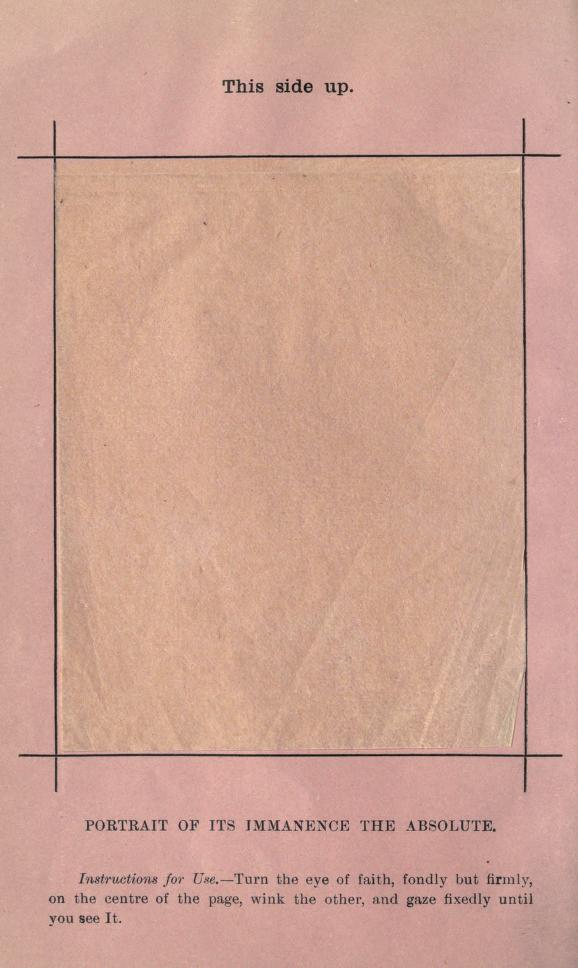Mind! A Unique Review (1901)
Filed under journal | Tags: · analytic philosophy, parody, philosophy, pragmatism
The philosophical journal Mind was first published in Oxford in 1876 with George Croom Robertson as editor. Back then philosophy in Britain was under the sway of Hegelians like Thomas Hill Green. F H Bradley and J.M.E. McTaggart. In the twentieth century Mind would be the home of the new analytical school, carrying articles by G.E. Moore (like “The Refutation of Idealism” in 1903), P F Strawson, Alan Turing and John Searle.
Just as philosophy in Britain was swinging from imperially-minded idealism, to the more pragmatic and cynical scepticism of the Cold War, the journal Mind was challenged from within. ‘A. Troglodyte’ was the pseudonym under which the Anglo-German philosopher and himself the treasurer of the Mind Association from 1900 to 1936, F.C.S. Schiller (1864-1937), brought out a special issue under the title Mind!. (adapted from a commentary by Heartfield, Mute, November 2013)
Mind! is subtitled the “Special Illustrated Christmas Number”, substituting the volume 10, number 4 of Mind. At a first glance it looks exactly like the “real” periodical with same colour of wrappers and same typography, but at a second glance, all of the contents are sarcastic. There are articles like “The Critique of Pure Rot” by I. Cant; “New Platonic Dialogues. I. the “Aporia” of the “Lysis”; II. A Sequel to the “Republic”; III. “Congratulations” “; “Zur Phänomenologie des absoluten Unsinns” by Prof. Dr. G. W. Flegel; “Pholisophy’s Last Word” by I.M. Greening; or New Aphorisms of Herakleitos (like “Asses prefer the sweepings of the lecture rooms to my original researches”, “There is a way to lecture and a way not. But the drier way is better than the damper”, “There is a way to lecture and a way from lecture; and the way to and the way from are the same: it is a short cut”).
Edited by A. Troglodyte, with the cooperation of The Absolute and others
Publisher Williams and Norgate, London, 1901
141 pages
PDF (b/w version)
View online (Archive.org)
Larry Hickman: Philosophical Tools for Technological Culture. Putting Pragmatism to Work (2001)
Filed under book | Tags: · critical theory, philosophy, philosophy of technology, politics, pragmatism, technological determinism, technology, technoscience

A practical and comprehensive appraisal of the value of philosophy in today’s technological culture.
Philosophical Tools for Technological Culture contends that technology—a defining mark of contemporary culture—should be a legitimate concern of philosophers. Larry A. Hickman contests the perception that philosophy is little more than a narrow academic discipline and that philosophical discourse is merely redescription of the ancient past. Drawing inspiration from John Dewey, one of America’s greatest public philosophers, Hickman validates the role of philosophers as cultural critics and reformers in the broadest sense. Hickman situates Dewey’s critique of technological culture within the debates of 20th-century Western philosophy by engaging the work of Richard Rorty, Albert Borgmann, Jacques Ellul, Walter Benjamin, Jürgen Habermas, and Martin Heidegger, among others. Pushing beyond their philosophical concerns, Hickman designs and assembles a set of philosophical tools to cope with technological culture in a new century. His pragmatic treatment of current themes—such as technology and its relationship to the arts, technosciences and technocrats, the role of the media in education, and the meaning of democracy and community life in an age dominated by technology—reveals that philosophy possesses powerful tools for cultural renewal. This original, timely, and accessible work will be of interest to readers seeking a deeper understanding of the meanings and consequences of technology in today’s world.
Publisher Indiana University Press, 2001
The Indiana Series in the Philosophy of Technology
ISBN 0253338697, 9780253338693
215 pages
PDF (updated on 2013-6-3)
Comment (1)

